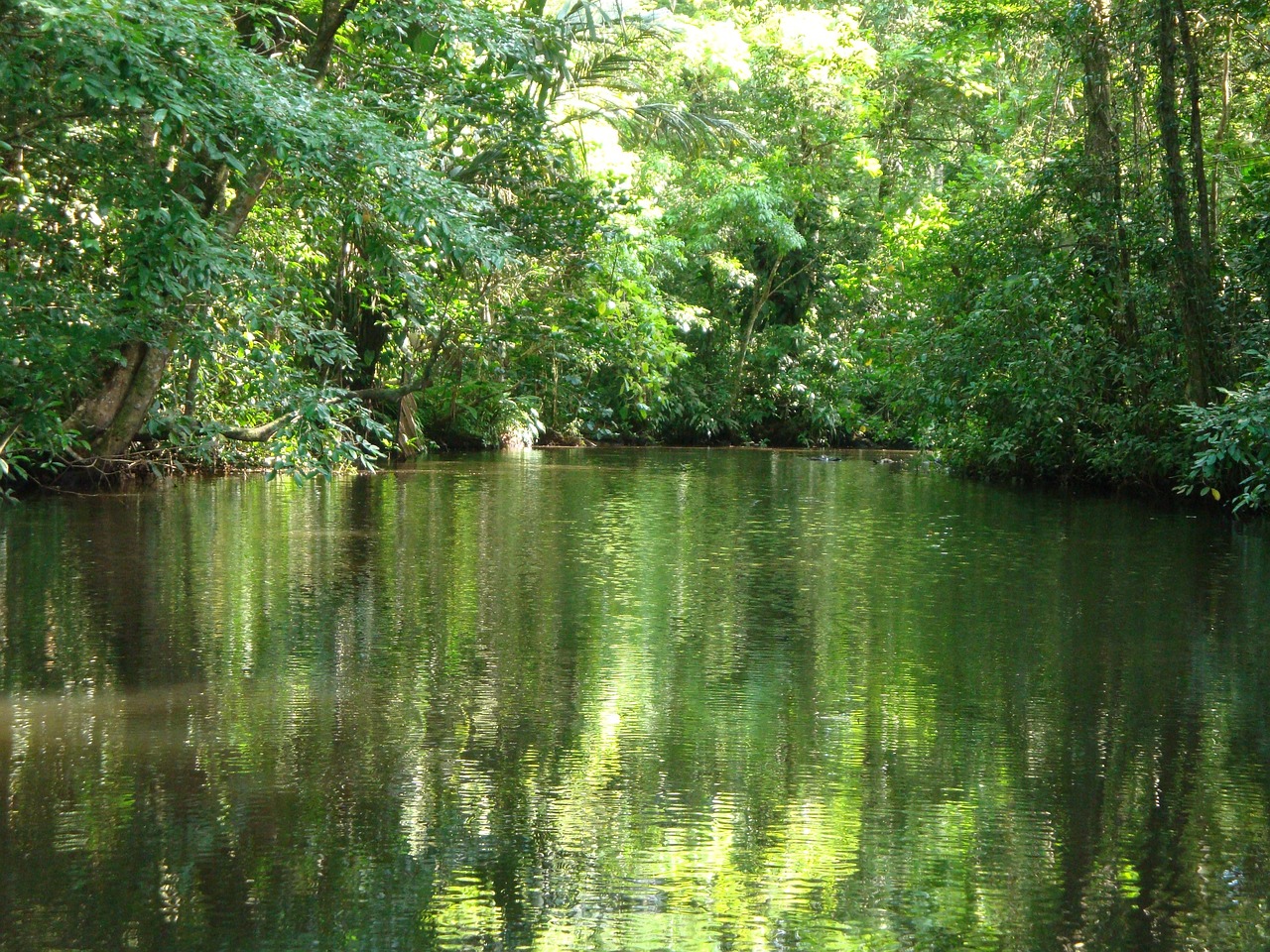Cultural Sensitivities: Understanding Local Norms in Costa Rica
Costa Rica, a small country in Central America, is known for its stunning natural beauty, biodiversity, and warm, welcoming people. When visiting or interacting with locals in Costa Rica, it is important to be aware of cultural sensitivities and understand the local norms. This article aims to provide a detailed understanding of the cultural nuances in Costa Rica to ensure a respectful and enjoyable experience.
Greetings and Social Etiquette
When meeting someone in Costa Rica, it is customary to greet them with a handshake and a warm smile. Costa Ricans value politeness and friendliness, so it is important to maintain eye contact and use appropriate greetings. Remember to address people using their titles, such as “Señor” for men and “Señora” for married women. It is also common to use “Tico” or “Tica” as a friendly term for a Costa Rican.
- Respecting Personal Space: Costa Ricans generally maintain a close proximity while conversing, so it is important to respect personal space boundaries and avoid standing too far away.
- Punctuality: While being on time is appreciated, Costa Ricans tend to have a more relaxed approach to time. It is common for social gatherings or meetings to start a little later than scheduled, so it is advisable to be flexible and patient.
- Gift Giving: If invited to someone’s home, bringing a small gift, such as flowers or chocolates, is a thoughtful gesture. Avoid giving expensive gifts, as it may make the recipient uncomfortable.
- Table Manners: When dining with Costa Ricans, it is customary to wait for the host to start eating before you begin. It is also polite to keep your hands visible on the table and to finish everything on your plate.
Clothing and Appearance
Costa Rica has a tropical climate, so lightweight and breathable clothing is recommended. However, when visiting religious sites or formal occasions, it is important to dress modestly and respectfully. Avoid wearing revealing or beach attire in these settings.
- Beach Attire: While it is acceptable to wear swimsuits and beachwear at the beach or poolside, it is considered inappropriate to walk around town or enter shops or restaurants in swimwear.
- Sun Protection: Due to the strong sun, it is important to protect yourself with sunscreen, hats, and sunglasses. Wearing appropriate clothing to cover exposed skin is also advisable.
- Casual Attire: In most casual settings, such as restaurants and markets, casual attire like shorts, t-shirts, and sandals is acceptable.
- Formal Occasions: For formal events, men usually wear suits or dress shirts with trousers, while women opt for elegant dresses or pantsuits.
Religious and Cultural Practices
Costa Rica is predominantly Catholic, and religion plays a significant role in the daily lives of many Costa Ricans. It is important to respect their religious and cultural practices.
- Church Etiquette: When visiting churches or religious sites, dress modestly and observe silence and respectful behavior. Avoid taking photos unless permitted.
- Religious Holidays: During religious holidays, such as Easter and Christmas, many businesses and services may be closed or have limited hours. It is essential to plan accordingly and be aware of any cultural celebrations taking place.
- Environmental Conservation: Costa Ricans have a deep respect for nature and prioritize environmental conservation. It is important to follow sustainable practices, such as using reusable water bottles and avoiding littering.
- Traditional Festivals: Costa Rica is known for its vibrant festivals, such as the “Fiestas Patronales” and the “Festival de la Luz.” These events showcase traditional music, dance, and costumes. It is a fantastic opportunity to immerse yourself in the local culture and traditions.
Food and Dining Customs
Costa Rican cuisine is diverse and delicious, with a focus on fresh ingredients and flavors. When dining in Costa Rica, there are a few customs to keep in mind.
- Tipping: It is customary to leave a 10% tip at restaurants, unless a service charge is already included. Leaving a small tip for taxi drivers and hotel staff is also appreciated.
- Meal Times: Costa Ricans typically have a light breakfast, a substantial lunch, and a lighter dinner. Lunch is considered the main meal of the day, and many businesses close for a few hours during this time.
- Local Specialties: Don’t miss the opportunity to try traditional Costa Rican dishes, such as “gallo pinto” (rice and beans), “casado” (a plate with rice, beans, meat, and vegetables), and “ceviche” (marinated seafood).
- Coffee Culture: Costa Rica is famous for its high-quality coffee. Engaging in the local coffee culture and enjoying a cup of freshly brewed coffee is a must-do experience.
Communication and Language
The official language of Costa Rica is Spanish, and while many locals speak English, it is helpful to learn a few basic Spanish phrases to enhance your interactions.
- Greetings: Learn basic greetings like “Hola” (Hello), “Buenos días” (Good morning), “Buenas tardes” (Good afternoon), and “Buenas noches” (Good evening).
- Politeness: Use “Por favor” (Please) and “Gracias” (Thank you) frequently. Politeness is highly valued in Costa Rican culture.
- Non-Verbal Communication: Pay attention to non-verbal cues, such as body language and facial expressions. Costa Ricans often use gestures and facial expressions to convey meaning.
- Language Assistance: If you need assistance in English, seek help from younger individuals or those working in the tourism industry, as they are more likely to be proficient in English.
Respecting Nature and Wildlife
Costa Rica is renowned for its incredible biodiversity and commitment to environmental conservation. It is crucial to respect nature and wildlife during your visit.
- National Parks: When visiting national parks, follow the designated trails and guidelines provided by park authorities. Avoid touching or feeding wildlife, as it can be harmful to their natural behaviors.
- Protected Areas: Costa Rica has many protected areas, including reserves and marine parks. Observe any rules and regulations in place to preserve these fragile ecosystems.
- Ecotourism: Support local ecotourism initiatives that prioritize sustainability and responsible practices. Choose accommodations and tour operators that have eco-friendly certifications.
- Beach Conservation: When visiting beaches, avoid littering and respect nesting areas for sea turtles. Many beaches have specific regulations to protect these endangered species.
Transportation and Safety
Getting around Costa Rica requires understanding the transportation options and prioritizing safety.
- Public Transportation: Costa Rica has an extensive public bus network that connects major towns and cities. Buses are an affordable and reliable mode of transportation.
- Taxis and Rideshares: Taxis are widely available, and rideshare services like Uber operate in major cities. Ensure the taxi has a red license plate, indicating it is an authorized taxi.
- Driving: If you plan to rent a car, familiarize yourself with local traffic laws and road conditions. Be cautious while driving, especially in rural areas where roads may be less developed.
- Safety Precautions: As with any travel destination, it is important to take basic safety precautions. Keep your belongings secure, avoid walking alone at night, and stay informed about any potential risks.
Costa Rica Image 1:

Traditional Arts and Crafts
Costa Rica has a rich cultural heritage, and exploring traditional arts and crafts is a great way to immerse yourself in local culture.
- Artisan Markets: Visit local artisan markets to discover unique handicrafts, including pottery, wood carvings, and woven textiles. Support local artisans by purchasing their products.
- Traditional Music and Dance: Experience the vibrant rhythms of traditional Costa Rican music, such as “marimba” and “punto guanacasteco.” Folkloric dance performances showcase the country’s diverse cultural traditions.
- Indigenous Communities: Costa Rica is home to several indigenous communities, each with its distinct customs and crafts. Respect their cultural heritage and consider participating in community-based tourism initiatives.
Costa Rica Image 2:

Health and Safety
Prioritizing your health and safety is essential when traveling to Costa Rica.
- Healthcare: Costa Rica has a well-developed healthcare system, and many private hospitals cater to international patients. It is advisable to have travel insurance that covers medical emergencies.
- Insect Protection: Protect yourself from mosquito bites by using insect repellent and wearing long sleeves and pants, especially in areas with a higher risk of mosquito-borne diseases.
- Water Safety: While tap water in Costa Rica is generally safe to drink, it is recommended to drink bottled water or use a water purifier to avoid any potential stomach issues.
- Emergency Services: Familiarize yourself with the local emergency numbers, including 911 for general emergencies and 128 for tourist police assistance.
Exploring Costa Rica’s Natural Wonders
Costa Rica is blessed with a diverse array of natural wonders, including lush rainforests, volcanoes, and pristine beaches.
- National Parks and Reserves: Costa Rica has over 30 national parks and numerous reserves. Explore iconic destinations like Manuel Antonio National Park, Arenal Volcano National Park, and Tortuguero National Park.
- Beach Destinations: From the Pacific coast to the Caribbean, Costa Rica offers stunning beaches for swimming, surfing, and relaxation. Popular beach destinations include Tamarindo, Jaco, and Puerto Viejo.
- Adventure Activities: Engage in thrilling activities like ziplining, white-water rafting, and hiking through cloud forests. Costa Rica is known for its adventure tourism offerings.
Costa Rica Image 3:

Conclusion
By understanding and respecting the cultural sensitivities and local norms in Costa Rica, you can have a more meaningful and enjoyable experience. Embrace the warm hospitality, explore the natural wonders, and immerse yourself in the rich cultural heritage of this beautiful country. Remember to always be respectful, open-minded, and appreciative of the unique customs and traditions you encounter during your visit to Costa Rica.
References
– Visit Costa Rica: www.visitcostarica.com
– Lonely Planet Costa Rica: www.lonelyplanet.com/costa-rica
– Costa Rica Tourism Board: www.visitcostarica.com
– Costa Rica Travel Guide: www.costarica.com


